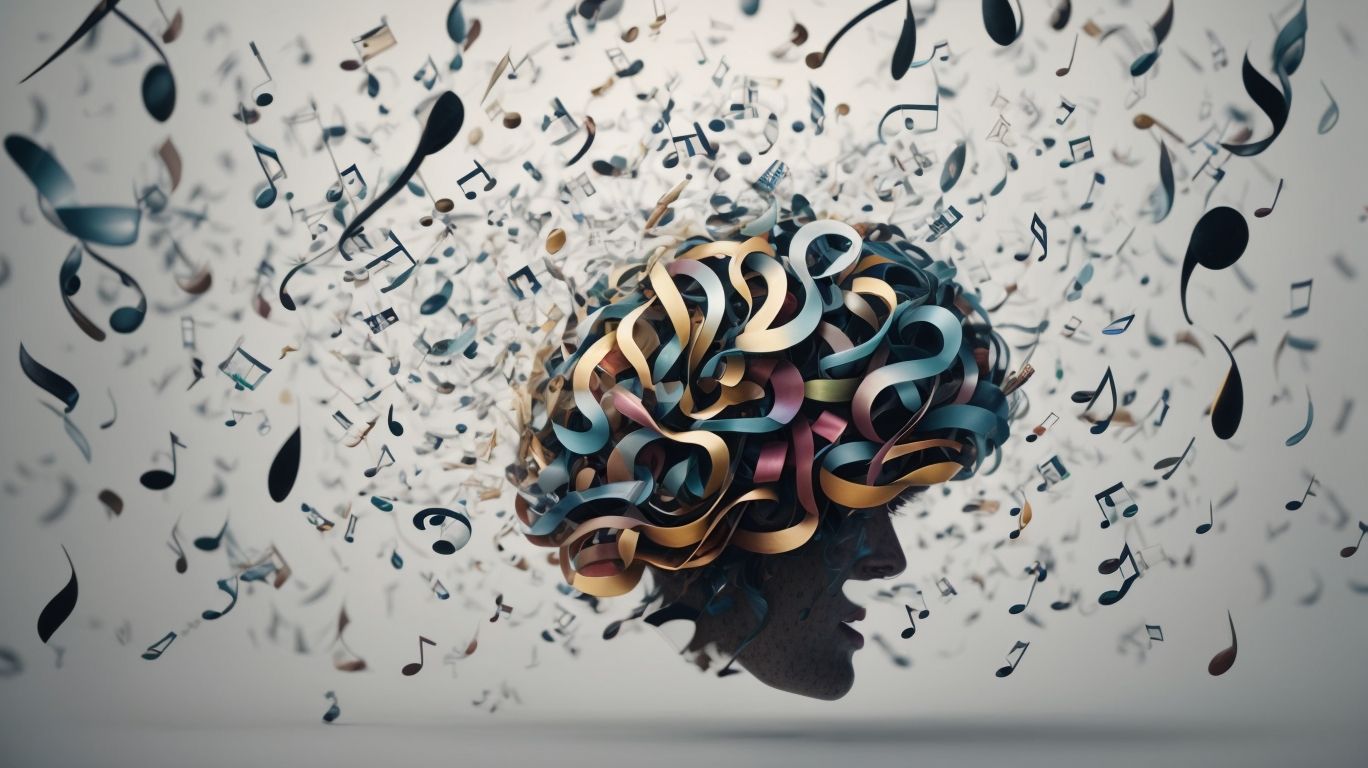Have you ever wondered about the incredible power of music and how it can affect our brains? From enhancing memory and boosting mood to improving physical performance, music has a profound impact on our psychological well-being.
In this article, we will explore how music influences the brain, its psychological effects, and the benefits it offers. We will also dive into the fascinating world of music therapy and how different types of music can have varying effects on our minds.
Let’s uncover the secrets of music’s influence on our mental health and well-being.
Contents
- 1 What Is the Power of Music?
- 2 How Does Music Affect the Brain?
- 3 What Are the Psychological Effects of Music?
- 4 What Are the Benefits of Music on the Brain?
- 5 How Can Music Be Used in Therapy and Treatment?
- 6 What Types of Music Have the Most Impact on the Brain?
- 7 Frequently Asked Questions
- 7.1 What is the power of music and how does it affect the brain from a psychological perspective?
- 7.2 How does music affect our emotions?
- 7.3 Can music be used as a form of therapy?
- 7.4 Is there a connection between music and memory?
- 7.5 Why do certain songs or genres of music resonate with us more than others?
- 7.6 Can music improve cognitive function?
What Is the Power of Music?
The power of music transcends mere auditory pleasure, encompassing a profound impact on the brain’s functions, both evolutionary and social.
Music has played a crucial role in the development of human societies, fostering social cohesion and communication through shared rhythmic patterns and melodies. It is believed that our ancestors used music as a tool for bonding, promoting group solidarity and cooperation. The cognitive benefits of music extend to enhancing memory retention, cognitive processing, and emotional regulation, stimulating various regions of the brain.
How Does Music Affect the Brain?
The intricate relationship between music and the brain is underscored by its neurological effects, involving the activation of neurons, release of dopamine, and enhancement of coordination.
When music is processed by the brain, various regions light up, stimulating a cascade of neural activity. This activation of neurons enhances cognitive functions, memory retention, and emotional responses, fostering a holistic engagement with the auditory stimuli. The release of dopamine during this musical experience further contributes to feelings of pleasure, reward, and motivation, creating a profound connection between music and mental well-being. The improved coordination observed in individuals exposed to music can be attributed to the synchronization of motor skills with rhythm and melody, showcasing the intricate interplay between auditory perception and motor control.
What Are the Different Areas of the Brain That Music Can Affect?
Music’s influence on the brain extends to various regions, such as the frontal lobe, temporal lobe, cerebellum, amygdala, and hippocampus, each contributing to distinct cognitive and emotional responses.
For instance, the frontal lobe is key in processing musical syntax, helping in organizing and integrating various elements of songs and melodies. The temporal lobe, on the other hand, plays a significant role in recognizing rhythms and tones, contributing to our ability to perceive music’s structure and tempo seamlessly. The cerebellum aids in coordinating movement and timing in response to music, explaining why we often tap our feet or sway in time with the beat.
What Are the Psychological Effects of Music?
Music‘s psychological effects encompass a wide spectrum of emotional and cognitive responses, playing a pivotal role in memory formation and emotional regulation, particularly in individuals with neurological disorders.
When individuals listen to music that resonates with their emotions, it can evoke strong feelings of joy, sadness, nostalgia, or even tranquility. This emotional connection to music can facilitate a deeper understanding of one’s own feelings and help in the regulation of emotions.
In terms of memory enhancement, music has been found to stimulate various areas of the brain involved in memory processing, enhancing the encoding and retrieval of information. For individuals with neurological disorders such as Alzheimer’s or Parkinson’s disease, music therapy has shown promise in improving cognitive function, reducing anxiety, and enhancing overall quality of life.
How Does Music Influence Emotions?
Music’s profound impact on emotions is intricately linked to the activation of brain regions like the amygdala and hippocampus, which are crucial for emotional processing and memory formation.
These brain regions play a key role in recognizing and interpreting auditory stimuli, especially those with emotional content. The amygdala processes the emotional aspects of music, triggering feelings of fear, pleasure, or nostalgia. Meanwhile, the hippocampus is responsible for forming memories associated with the music, connecting specific tracks or melodies with personal experiences.
When individuals listen to music, these regions work in harmony to evoke various emotional responses and store them in memory. Studies have shown that listening to music can stimulate the release of neurotransmitters like dopamine and serotonin, enhancing mood and fostering emotional connections. The synchronization of brain waves during music processing contributes to the emotional resonance that music holds.
Can Music Improve Mental Health?
The therapeutic potential of music extends to improving mental health conditions such as Alzheimer’s disease, Parkinson’s disease, depression, anxiety, and schizophrenia, offering a holistic approach to mental well-being.
Music therapy has been recognized as a powerful tool in the treatment of Alzheimer’s disease by stimulating memories and enhancing cognitive functions in patients.
For individuals with Parkinson’s disease, rhythmic auditory stimulation through music can aid in improving movement coordination and reducing tremors.
In cases of depression and anxiety, listening to soothing music can help regulate emotions and reduce stress levels.
Music therapy has shown promising results in managing symptoms of schizophrenia by promoting social interaction and emotional expression.
How Does Music Therapy Work?
Music therapy operates on the premise of utilizing musical interventions to address various psychological and physical issues, with specialized professionals like neurologic music therapist, Kerry Devlin, spearheading innovative approaches, even in the context of the COVID-19 pandemic.
In music therapy, the therapeutic process encompasses a range of techniques tailored to individual needs, such as active music-making, listening exercises, and lyric analysis to encourage self-expression and emotional exploration.
- One key aspect is the use of rhythmic auditory stimulation to improve motor skills in patients recovering from strokes or neurological disorders.
- The incorporation of live or recorded music can evoke memories, facilitate communication, and enhance social interactions, making it especially valuable in dementia care.
- Neurologic music therapists like Kerry Devlin play a crucial role in designing and implementing personalized music interventions, drawing on their expertise in neuroscience and music theory.
What Are the Benefits of Music on the Brain?
The benefits of music on the brain are manifold, ranging from physiological enhancements to mental health improvements, facilitating processes like neurogenesis and the formation of synaptic connections.
Playing and listening to music can significantly enhance cognitive functions such as memory, attention, and executive functioning. Studies have shown that music can activate various regions of the brain simultaneously, stimulating neural pathways and leading to improved brain plasticity.
The emotional and psychological impact of music can help reduce stress, anxiety, and depression, providing a natural avenue for mental relaxation and emotional expression. In fact, certain genres of music have been linked to increased production of dopamine, known as the ‘feel-good’ neurotransmitter, promoting a sense of happiness and well-being.
Enhances Memory and Learning
Music’s influence on memory and learning is intricately linked to the activation of neural pathways, particularly in the hippocampus, fostering enhanced physical memory and cognitive retention.
Research has shown that listening to music can stimulate various regions of the brain, creating a powerful impact on memory function. The interplay between music and the brain’s neural pathways can trigger emotional responses, which in turn lead to the release of neurotransmitters that strengthen memory recall. The hippocampus, often referred to as the brain’s memory center, plays a crucial role in encoding and consolidating information acquired while music is being processed. This engagement of the hippocampus not only aids in the retention of new knowledge but also helps in the formation of long-term memories. Read more about the power of music and its impact on the brain from a psychological perspective.
Boosts Mood and Reduces Stress
Music’s ability to boost mood and alleviate stress is underpinned by the release of dopamine, which triggers positive emotional responses and activates the nucleus accumbens, resulting in enhanced emotional well-being.
This intricate relationship between music and the brain’s reward system showcases the profound impact of harmonious melodies on our mental state. When individuals engage with music that resonates with them, it sets off a chain of biochemical reactions that contribute to a sense of euphoria and relaxation.
The activation of the nucleus accumbens, also known as the brain’s pleasure center, plays a pivotal role in reinforcing the association between music and positive feelings. This neurochemical cascade delivers a wave of pleasure-inducing neurotransmitters, fostering a state of tranquility and contentment.
Improves Physical Performance
Music’s impact on physical performance manifests through enhanced coordination and movement, with particular benefits for individuals with conditions like Alzheimer’s disease and Parkinson’s disease, showcasing its therapeutic potential in motor skills.
Coordination, a crucial element in physical activities, is significantly improved through the rhythmic patterns and beats of music. The synchronization of movements with music helps individuals execute tasks with greater precision and fluidity. Music serves as a powerful motivator, enhancing endurance and optimizing performance during exercise routines. For individuals with conditions like Alzheimer’s disease and Parkinson’s disease, music therapy has shown remarkable results in improving gait, balance, and overall motor function, providing a non-pharmacological approach to enhancing physical abilities.
How Can Music Be Used in Therapy and Treatment?
Music serves as a versatile tool in therapy and treatment, offering valuable interventions for mental illnesses such as depression, anxiety, schizophrenia, and even in supporting the recovery of COVID-19 patients.
This is due to its ability to evoke emotions, stimulate cognitive function, and promote relaxation, which are crucial elements in managing these conditions. Research has shown that incorporating music into therapy sessions can reduce symptoms of depression and anxiety, improve focus and attention in individuals with schizophrenia, and enhance overall well-being in COVID-19 patients.
Music Therapy for Mental Health Disorders
Music therapy stands as a transformative approach in addressing mental health disorders, as elucidated in Elena Mannes’ book, showcasing the profound impact of music interventions on psychological well-being.
Music therapy, rooted in the power of sound and rhythm, has the ability to reach deep into the human psyche, stirring emotions and memories often unreachable through traditional forms of therapy. The therapeutic use of music taps into the intrinsic connection between music and the brain, stimulating neural pathways and promoting emotional release.
Incorporating music into therapy sessions provides individuals facing mental health challenges with a unique outlet for expression, allowing for the articulation of complex feelings and experiences that words alone may struggle to convey. By engaging in creative musical activities under the guidance of trained therapists, individuals can navigate their psychological landscapes, opening doors to healing and self-discovery.
Music Therapy for Physical Rehabilitation
Music therapy plays a vital role in physical rehabilitation, particularly in conditions like stroke, where it aids in movement recovery through the activation of neural pathways and motor coordination.
By leveraging the intrinsic connection between music and movement, therapists can utilize rhythmic cues to facilitate gait training and improve balance in stroke patients. Music therapy can help enhance overall motor function by engaging both hemispheres of the brain, fostering neuroplasticity crucial for recovery. Through personalized music interventions, individuals undergoing rehabilitation can experience increased motivation, emotional expression, and social interaction, enhancing their overall well-being and quality of life.
Music Therapy for Pain Management
Music therapy emerges as a non-invasive method for pain management, notably in the context of treating COVID-19 patients, as exemplified by the initiatives of Indiana University School of Medicine.
Music therapy’s benefits in pain management extend beyond just providing relief during the treatment of COVID-19 patients; it has been shown to reduce anxiety, elevate mood, and improve overall quality of life. The soothing power of music can help distract individuals from pain, allowing for better coping mechanisms and reducing the need for higher doses of pain medications.
Indiana University School of Medicine’s dedication to integrating music therapy into their patient care highlights the growing recognition of this complementary approach in mainstream medical settings. Through the use of personalized playlists, live music sessions, and guided relaxation techniques, patients can experience a holistic healing process that addresses not just physical pain but emotional and psychological distress as well.
What Types of Music Have the Most Impact on the Brain?
Certain types of music wield a significant impact on the brain due to their unique attributes, with genres like classical music, nature sounds, and binaural beats standing out for their cognitive and emotional effects.
Classical music, known for its intricate compositions and rich harmonies, has been found to stimulate multiple areas of the brain, enhancing concentration and memory. Listening to classical pieces stimulates emotions and analytical thinking simultaneously, offering a blend of mental engagement and emotional resonance.
On the other hand, nature sounds, such as flowing water or bird songs, have a calming effect on the brain, reducing stress and promoting relaxation through their association with natural settings.
Binaural beats, a form of auditory illusion perceived when two different tones are presented to each ear, are believed to influence brainwave patterns, potentially aiding in relaxation, focus, and even sleep induction. These beats are said to synchronize brain hemispheres, optimizing cognitive function and potentially enhancing mood regulation.
Classical Music
Classical music holds a revered status for its profound impact on the brain, evident in initiatives like YOLA at the University of Southern California that harness its benefits for cognitive and emotional well-being.
The intricate melodies and harmonies of classical compositions have been found to stimulate various regions of the brain responsible for memory, emotions, and creativity. Research indicates that exposure to classical music can enhance cognitive functions, such as focus, problem-solving, and spatial reasoning. The emotional depth and complexity of pieces by renowned composers like Mozart and Beethoven evoke a range of feelings that can promote relaxation, reduce stress levels, and improve overall mental well-being. Initiatives like YOLA provide a platform for individuals to experience these therapeutic effects firsthand, paving the way for a deeper appreciation of classical music’s transformative power.”
Nature Sounds
Nature sounds have a calming effect on the brain, promoting relaxation and enhancing cognitive functions, as evidenced by programs like Sound Health that utilize these auditory stimuli for well-being.
When individuals are exposed to nature sounds such as flowing water, rustling leaves, or chirping birds, their brain activity shifts towards a state of tranquility and mindfulness. This shift not only reduces stress levels but also improves focus, creativity, and overall mental well-being.
Research suggests that the natural soundscape can act as a form of therapy, aiding in the regulation of emotions and boosting cognitive processes. Programs like Sound Health leverage these benefits, incorporating nature sounds in guided meditation sessions and relaxation exercises, providing a holistic approach to nurturing the mind and body.
Binaural Beats
Binaural beats offer a unique auditory experience that influences brain perception and development, with research at the University of Southern California showcasing their potential in enhancing cognitive processes.
Studies conducted by neuroscientists at the university have revealed that exposure to binaural beats can lead to increased synchronization of brain waves, promoting a state of relaxation and focus. This synchronization is crucial for optimal brain function and cognitive performance.
Binaural beats have been found to aid in reducing anxiety and stress levels, providing a natural remedy for individuals seeking improvements in mental well-being. The rhythmic patterns of binaural beats stimulate various regions of the brain, leading to a holistic enhancement of cognitive abilities.
Frequently Asked Questions
What is the power of music and how does it affect the brain from a psychological perspective?
The power of music refers to the ability of music to evoke various emotional and cognitive responses in individuals. From a psychological perspective, music has been found to have a profound impact on the brain, influencing our thoughts, emotions, and behaviors.
How does music affect our emotions?
Music has a direct impact on our emotional state by activating the limbic system in our brain, which is responsible for processing emotions. Different types of music can evoke specific emotions, such as happiness, sadness, or nostalgia.
Can music be used as a form of therapy?
Yes, music therapy is a recognized form of therapy that uses music to address various psychological and emotional issues. It has been found to be effective in treating conditions such as depression, anxiety, and trauma.
Is there a connection between music and memory?
Research has shown that music can be a powerful tool for triggering memories and nostalgia. This is because music activates multiple areas of the brain, including those associated with memory and emotions.
Why do certain songs or genres of music resonate with us more than others?
This can be due to personal preferences and past experiences, but also because of the brain’s response to certain musical elements, such as rhythm, melody, and lyrics. These elements can create a sense of familiarity and connection, making us more likely to enjoy and resonate with a particular song or genre.
Can music improve cognitive function?
Yes, listening to music has been found to improve cognitive function, particularly in tasks that require creativity and problem-solving. Music can also stimulate brain activity and enhance learning and memory.



